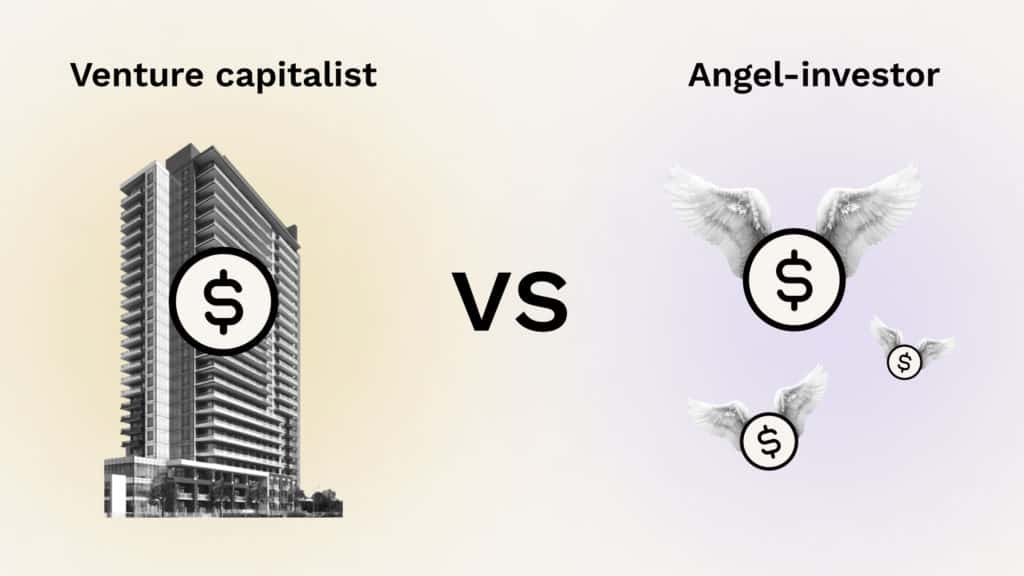Venture capital (VC) is a different method of financing that includes the provision of funds to newly built start-ups and small businesses that have high growth and potential with an intent to get the benefits later on. The funds are typically diverted from High-Net-worth individuals, investment banks, and other financial institutions.

Venture capitalists not only provide monetary investments to startups but also provide technical and managerial expertise to scale up their businesses. Small companies with exceptional growth potential or established businesses with rapid expansion are the primary beneficiaries of VC funding.
It is true that VC investment carries a certain amount of risk with it but the possibility of an above-average return is a significant incentive. Those startups which are newly formed or those companies that have limited operating history require a mentor who can guide them in the cold space of entrepreneurship and that’s where these venture capitalists come in, VC funding is getting traction in India as well as in other parts of the world. It has become a necessity for new companies to reach out to VC’s as they are not able to generate sustainable capital to support their company. However the investors most of the time ask for a stake or equity in the company.
Understanding Venture Capital

In the realm of high finance, the world of venture capital deals stands out as a unique and complex arena. These deals involve the creation of large ownership stakes in companies, which are then sold off to a select group of investors through independent limited partnerships. These partnerships are established by venture capital firms, which specialize in this type of investment.
One key characteristic of venture capital deals is their focus on emerging companies that are seeking substantial funds for the first time. This stands in contrast to other types of private equity deals, which tend to fund larger, more established companies that are seeking an equity infusion or a chance for company founders to transfer some of their ownership stakes.
Despite the complexity of venture capital deals, they have become a popular investment vehicle for many high-net-worth individuals and institutional investors. This is due in part to the potential for high returns on investment, as well as the ability to take advantage of the burstiness and volatility of emerging markets. However, these investments also carry a high degree of perplexity, as they often require extensive due diligence and specialized knowledge of the industries in which the targeted companies operate.
Venture capital investments pose a multitude of challenges, one of which is the high degree of burstiness characterizing them. This phenomenon entails that these investments are highly concentrated in a select few companies, with most of the capital being directed towards a handful of firms. The result is a marked fluctuation in the overall performance of a venture capital portfolio, as the success or failure of a single investment or two can significantly impact returns.
Notwithstanding the aforementioned challenges, venture capital deals continue to be a crucial and dynamic aspect of the global investment landscape. They present investors with an exceptional opportunity to partake in the progress and expansion of innovative new firms, while also offering the possibility of substantial financial gains. It is therefore likely that they will continue to attract the attention of sophisticated investors for many years to come
Venture capital, a subset of private equity, has a distinct history that emerged in the mid-twentieth century. While private equity has a more extensive history dating back to the 1800s, the growth of the American economy and technological advancements during World War II led to the emergence of venture capital as an industry.
Georges Doriot, a Harvard Business School professor, was one of the key figures in the establishment of the modern venture capital industry. In 1946, Doriot founded the American Research and Development Corporation (ARD), raising a fund of $3.5 million to invest in companies that developed technologies during WWII. ARD’s initial investment of $200,000 in a firm that aimed to utilize x-ray technology for cancer treatment turned out to be highly successful, with the company eventually going public in 1955 and generating a significant return of $1.8 million.
History of Venture Capital

The venture capital industry has witnessed notable growth and diversification over the years, with investors actively seeking promising and innovative startups across a range of fields such as biotechnology, technology, and renewable energy. This industry is renowned for providing fledgling firms with the financial backing and mentorship to aid their growth and ultimate success. It plays a pivotal role in fostering innovation, creating employment opportunities, and contributing to economic growth on a global scale.
The industry’s achievements can primarily be attributed to its high degree of perplexity and burstiness. Venture capitalists continuously search for novel and inventive ideas, leading to a diverse array of investments that are typically marked by considerable uncertainty. This unpredictability often results in a bursty investment pattern where a small number of lucrative investments generate significant returns, while many others may not.
Despite the high risk associated with venture capital investments, the potential rewards are substantial. Successful startups can generate substantial returns for investors while simultaneously propelling economic growth and technological advancement. As a result, venture capital has become an indispensable element of the contemporary economy, with its impact being felt across a range of sectors and regions.
Hit By the 2008 Financial Crisis

The 2008 economic downturn had a profound impact on the venture capital sector, dealing it a significant blow. Institutional investors, whose funding had become an indispensable component of the industry, adopted a more cautious approach, triggering a ripple effect that reverberated throughout the industry.
However, the emergence of unicorns, startups with a valuation of over a billion dollars, has had a transformative impact on the industry, eliciting interest from a diverse range of players, including sovereign funds and notable private equity firms. These entities have entered the arena, seeking to capitalize on significant returns in a low-interest-rate environment by participating in sizeable deals.
Their arrival has spurred changes in the venture capital ecosystem, with ripple effects extending throughout the industry.
Advantages and Disadvantages of Venture Capital

Venture capital serves as a critical source of funding for nascent businesses that face barriers to entry in the stock market and do not have the financial capability to procure debt. This financial arrangement offers mutual benefits, whereby businesses can obtain the necessary capital to bootstrap their operations, while investors acquire equity in promising companies.
Apart from investment capital, venture capitalists (VCs) also provide valuable guidance to new businesses through mentoring services, which facilitate the establishment of these companies, and networking services, which enable them to connect with talented personnel and advisors. Strong VC support can also catalyze additional investments and spur growth in the business.
However, accepting VC support also entails the possibility of relinquishing creative control over the company’s future direction. VCs typically demand a significant share of the company’s equity, and in some instances, they may seek to exert influence over the company’s management. It is not uncommon for many VCs to prioritize short-term, high-return payoffs and apply pressure on the company for a quick exit.
Pros & Cons of Venture Capital

Venture capital (VC) funding offers a promising opportunity for early-stage companies to acquire the necessary capital to bootstrap operations. Unlike bank loans, which often require proof of cash flow or assets as collateral, VC funding does not necessitate these prerequisites.
In addition to financial assistance, VC investors may provide invaluable mentorship and networking services to help a new company establish a talented team and achieve growth. However, accepting VC investments may come with certain drawbacks.
VCs typically demand a significant share of company equity in exchange for their funding. Consequently, companies that agree to such investments may find themselves relinquishing creative control as their investors demand immediate returns on their investments. Moreover, VCs may place pressure on companies to exit their investment, rather than pursue long-term growth strategies. As a result, companies should weigh the pros and cons of accepting VC funding carefully and consider alternative funding options that may be more suitable for their long-term goals.
Types of Venture Capital
Venture capital is a complex and multifaceted domain that can be delineated by the growth stage of the company receiving the investment. It is a well-established fact that the risk for investors increases as the age of the company decreases.
The various stages of VC investment are characterized by specific features and requirements. The first stage is pre-seed, which is the initial phase of business development when the founders endeavor to transform their vision into a viable business plan. In this stage, they may seek the support of a business accelerator to secure early funding and obtain mentorship.
The second stage is seed funding, which marks the juncture when a nascent business seeks to launch its first product. Since revenue streams are yet to be established, the company will need the assistance of venture capitalists to fund all of its operations.
The third stage is early-stage funding, where a business has developed a product and requires additional capital to ramp up production and sales before it can attain self-funding. This stage necessitates one or more funding rounds, commonly referred to as Series A, Series B, and so forth.
In conclusion, venture capital is a sophisticated and intricate domain that is segmented into distinct stages of investment, each with its own unique characteristics and demands. As such, companies seeking VC funding must carefully consider which stage they are currently in and what funding requirements are necessary to progress to the next level
Venture Capital vs. Angel Investors

For the majority of small and emerging businesses in nascent industries, access to venture capital is commonly facilitated by high-net-worth individuals (HNWIs), colloquially referred to as “angel investors”, and venture capital firms. The National Venture Capital Association (NVCA) serves as an assemblage of several hundred venture capital firms that offer to fund innovative enterprises.
Angel investors are typically a heterogeneous group of individuals who have amassed their wealth through diverse sources, although they typically share common attributes. They are often entrepreneurs or former executives of established businesses who have recently retired.
Self-made investors who provide venture capital typically seek to invest in well-managed companies that have a fully-developed business plan and are positioned for significant growth. These investors tend to invest in ventures that operate in the same or similar industries or business sectors with which they are already familiar or have received academic training. Co-investing is a prevalent phenomenon among angel investors, where one investor funds a venture alongside a trusted friend or associate, often another angel investor.
The Venture Capital Process

For businesses seeking venture capital, the primary step involves submitting a comprehensive business plan to either a venture capital firm or an angel investor. In the event that the proposal is intriguing, the firm or investor will undertake due diligence, which includes an extensive investigation of the company’s business model, products, management, and operating history, among other essential factors.
Due to the significant amounts of capital that venture capital typically invests in a select few companies, this background research assumes paramount importance. Many venture capital professionals possess prior investment experience, often as equity research analysts; others may hold a Master of Business Administration (MBA) degree. Venture capital professionals also tend to specialize in a particular industry, with a venture capitalist concentrating on healthcare, for instance, having prior experience as a healthcare industry analyst.
Following the successful completion of due diligence, the firm or investor will pledge an investment of capital in return for equity in the company. While the funds may be provided all at once, they are more commonly disbursed in rounds. Subsequently, the firm or investor plays an active role in the funded company, offering advice and monitoring its progress before releasing additional funds.
The investor withdraws from the company after a predetermined period, typically within four to six years of the initial investment, through a merger, acquisition, or initial public offering (IPO).
Conclusion

Venture capital (VC) is a type of financing in which investors provide funds to startup companies and small businesses that have the potential for long-term growth. Apart from monetary investments, venture capital can also be provided in the form of technical or managerial expertise. VC funding is obtained from high-net-worth individuals, investment banks, and other financial institutions. The primary recipients of VC funding are small companies that exhibit exceptional growth potential or established businesses that have shown rapid expansion and are expected to continue growing.
VC investments can be risky for investors, but the potential for above-average returns is a significant payoff. Despite the complexity and burstiness of venture capital deals, they have become a popular investment vehicle for many high-net-worth individuals and institutional investors due to their potential for high returns on investment. Venture capital has a distinct history that emerged in the mid-twentieth century, and the industry has grown and diversified over time. The 2008 economic downturn had a profound impact on the venture capital sector, but the emergence of unicorns has had a transformative impact on the industry, eliciting interest from a diverse range of players, including sovereign funds and notable private equity firms.















